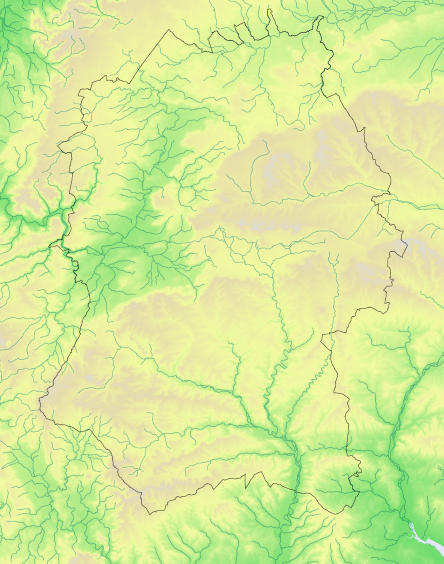Atlas species lists
- Breeding distribution 1995–2000
- Summer abundance 1995–2000
- Winter distribution 1995–2000
- Winter abundance 1995–2000
- Breeding distribution 2007–2012
- Summer abundance 2007–2012
- Winter distribution 2007–2012
- Winter abundance 2007–2012
- Breeding distribution change
- Summer abundance change
- Winter distribution change
- Winter abundance change
More Green Sandpiper maps
- Breeding distribution 1995–2000
- Summer abundance 1995–2000
- Winter distribution 1995–2000
- Winter abundance 1995–2000
- Breeding distribution 2007–2012
- Summer abundance 2007–2012
- Winter distribution 2007–2012
- Winter abundance 2007–2012
- Breeding distribution change
- Summer abundance change
- Winter distribution change
- Winter abundance change
More maps for this atlas
Map explanation
This map shows the winter distribution of the species in Wiltshire as revealed by the fieldwork for Birds of Wiltshire (Wiltshire Ornithological Society 2007).
Key
Status
Nos tetrads

Present
11
2%

Not surveyed
Green Sandpipers breed in freshwater habitats and at the edges of coastal marshes and estuaries, across the northern half of Europe and the northern third of Asia, mostly migrating to the Mediterranean area, sub-Saharan Africa, the Middle East and southern Asia during the winter. A small, but increasing, proportion of the breeding population overwinters in western Europe: Bird Atlas 2007-2011 recorded their presence in winter in 31% of British 10km squares (a 56% increase since the 1981-84 Winter Atlas ), mostly in Wales and southern England, but also in lowland areas of northern England and central Scotland. In recent years a few Green Sandpipers have nested in northern Scotland: Bird Atlas 2007-2011 recorded confirmed breeding in three 10km squares and possible breeding in a fourth.
In Wiltshire the species occurs either overwintering or as passage migrants in every month of the year with only a brief interval between mid-May and early June when none have been seen. WTA2 recorded Green Sandpipers in some 6% of Wiltshire tetrads in winter, a 50% increase since Birds of Wiltshire, and in 29 tetrads on passage during the breeding season.
References
The following references are used throughout these species accounts, in the abbreviated form given in quotation marks:
“1968-72 Breeding Atlas” – Sharrack, J.T.R. 1976: The Atlas of Breeding Birds in Britain and Ireland. T. & A. Poyser
“1981-84 Winter Atlas” – Lack, P.C. 1986: The Atlas of Wintering Birds in Britain and Ireland. T. & A. Poyser
“1988-91 Breeding Atlas” – Gibbons, D.W., Reid, J.B. & Chapman, R.A. 1993: The New Atlas of Breeding Birds in Britain and Ireland 1988-91. T. & A. Poyser
“Birds of Wiltshire” – Ferguson-Lees, I.J. et al. 2007 : Birds of Wiltshire, published by the tetrad atlas group of the Wiltshire Ornithological Society after mapping fieldwork 1995-2000. Wiltshire Ornithological Society.
“Bird Atlas 2007-2011” – Balmer, D.E., Gillings, S., Caffrey, B.J., Swann, R.L., Downie, I.S. and Fuller, R.J. 2013: Bird Atlas 2007-2011: the Breeding and Wintering Birds of Britain and Ireland
“WTA2” – ("Wiltshire Tetrad Atlas 2 ") the present electronic publication, bringing together the Wiltshire data from “Birds of Wiltshire” and “Bird Atlas 2007-11”, together with data from further fieldwork carried out in 2011 and 2012.
"Hobby" - the annual bird report of the Wiltshire Ornithological Society.

